Unconditional uni offers don't make us lazy, say teenagers
- Published
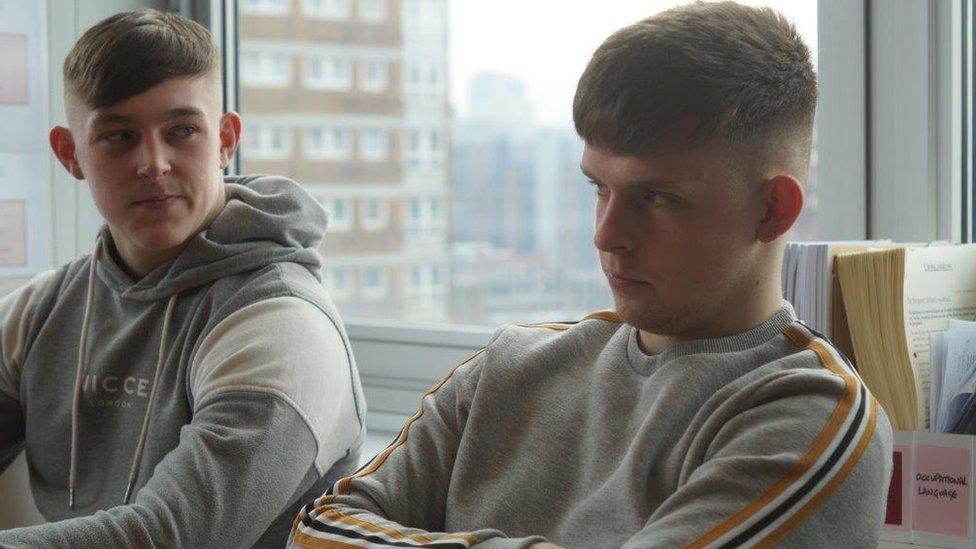
Harrison (right) is determined to keep working at the same level
Harrison has his dream university place in the bag.
The Leeds City College student is off to study sports journalism at the University of Huddersfield in September, with an unconditional offer.
No matter what the outcome of his BTec extended diploma, the place is assured, and 17-year-old Harrison says he's thrilled.
"I'd say that it makes me more relaxed," he says.
"I don't have to worry about it as much - but I'm not going to just stop making an effort, because obviously I want to work hard and I want to prove myself."
Foot off the gas?
Figures from the admissions service Ucas, external have shown a huge rise in unconditional offers over the past five years, with applicants who accept them more likely to miss their predicted results by two or more grades.
But Harrison is determined this won't happen to him
"I am going to keep working the same level as I already have," he says, "to try and make an impression in the future really."
But Bill Jones, deputy chief executive of the Leeds City College group, views unconditional offers with frustration.
No matter how good students' intentions, he says, "they know they don't need to stretch themselves and do an awful lot of extra work - and it is a lot of extra work to get a distinction rather than a merit or a pass or an A* rather than an A or a B or a C".
"We see them visibly take their foot off the gas," he says, "because even if they intend to work just as hard, the fact that it's still in the back of their mind that they don't actually have to to get that university place, means that many of them don't."
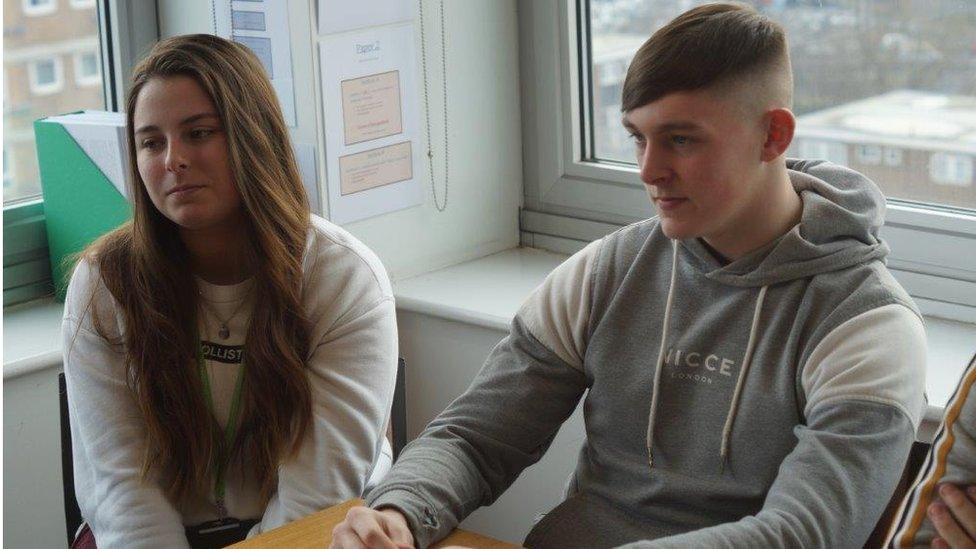
Jack and Amy both have places at Leeds Beckett University
A change of course?
Jack, who divides his time between college and playing centre with Leeds Rhinos under-19 rugby team, also has a university place assured, with an unconditional offer to study sport and exercise therapy at Leeds Beckett University.
It's not his top choice. He would prefer physiotherapy but he hasn't heard back from that course yet.
He says the teachers are still cracking the whip, determined to keep students working for the best grades.
He wants to do well but admits the unconditional offer means he can "relax a bit more" and he's taken a few more days off than he would have done otherwise.
"It's making me think about taking that course more now because I've got unconditional... and I know I'm there," he says.
"I just thought, 'Well, I've got an unconditional, I don't need to go in.'"
Jack's classmate Amy also received an unconditional offer for her first choice of sports event management at Leeds Beckett and agrees that while she's still hoping for good grades "even if I don't, I know full well I've still got a place at uni, so it makes it easier".
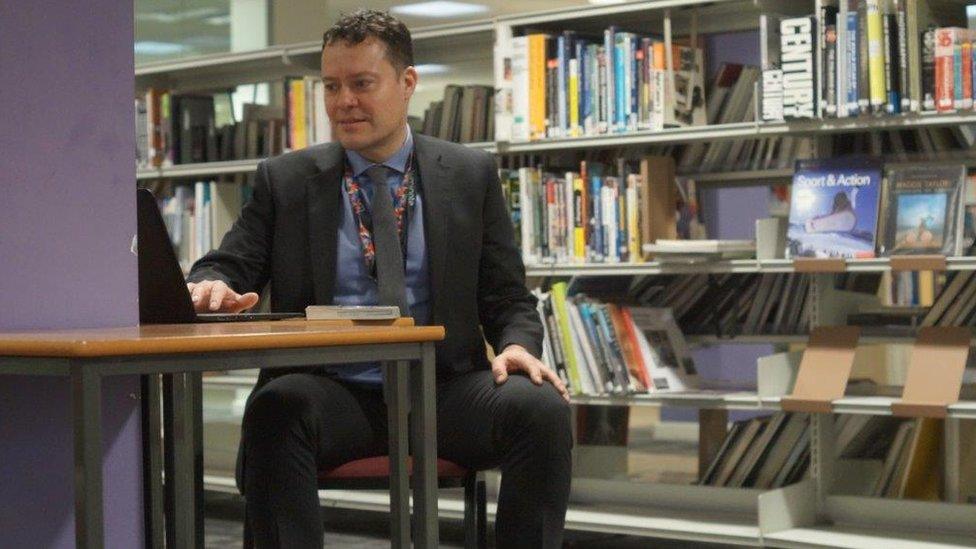
Bill Jones says unconditional offers do his students no favours
Overall, 14% of university applicants receive unconditional offers, with those aiming for less selective universities more likely to receive them.
Mr Jones says his concern for students who stop trying so hard goes beyond worries about the college's league table scores.
"It's about our students' life chances and the fact that they get to that university but we think that many of them could have stretched to get to a university that's going to give them better employment prospects in the future, a more prestigious university," he says.
Good school exam grades are important in the jobs market, particularly for students who drop out of university, Mr Jones says.
And it's "not just about the grades you get but also about the skills you learn along the way in terms of resilience, hard work, making sacrifices, deferred gratification".
"I think unconditional offers really undermine the development of those skills," he says.
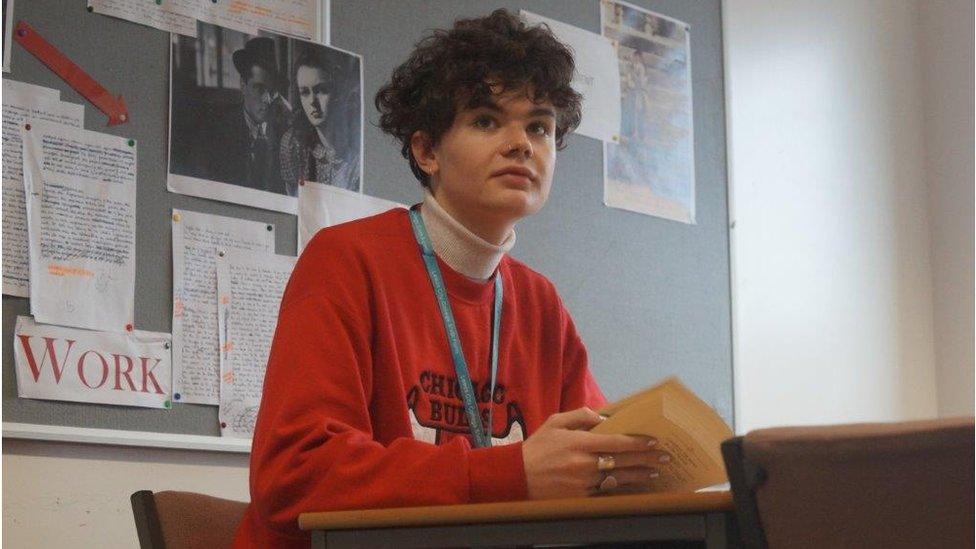
Ollie says the unconditional offer he turned down would have given him a safety net
A safety net
Ollie, 17, was offered an unconditional place at Manchester Metropolitan University if he made it his first choice but has opted for the far tougher option of achieving ABB grades to study English at Leeds University - and now he's nervous.
"I haven't got the safety net I would have had but it gives me something to aim for and it means I haven't got that temptation to just give up and throw it all away," he says.
"If I get those grades, it's going to be a lot better in the next three years... the ranking and the whole aura around Leeds was superior."
Alfie and his classmate Alexandra, also 17, are two of just three students taking further maths A-Level at the college.
He has an unconditional offer to study aerospace engineering from University of Central Lancashire but only if he puts UCLAN first.
"I think the unconditional offer, they're calling it unconditional, is ridiculous because it has a condition," he says.
"I have to put it as my firm choice, which by definition makes it not unconditional."
Alfie says he was tempted but has set his heart on studying the same subject at University of Teesside.
He says: "I felt I could learn a lot from them and there are lots of extracurricular things, like they were building a plane, various cars, things I could get involved with."
Alexandra has no unconditional offers and needs ABB for midwifery at Nottingham University.
"It's tough," she says, but she's not sorry at the prospect of extra work.
"If I'm able to get the grades, at least I'll know I'm able to be successful on [the course] because I have proved to myself I can do it," she says.
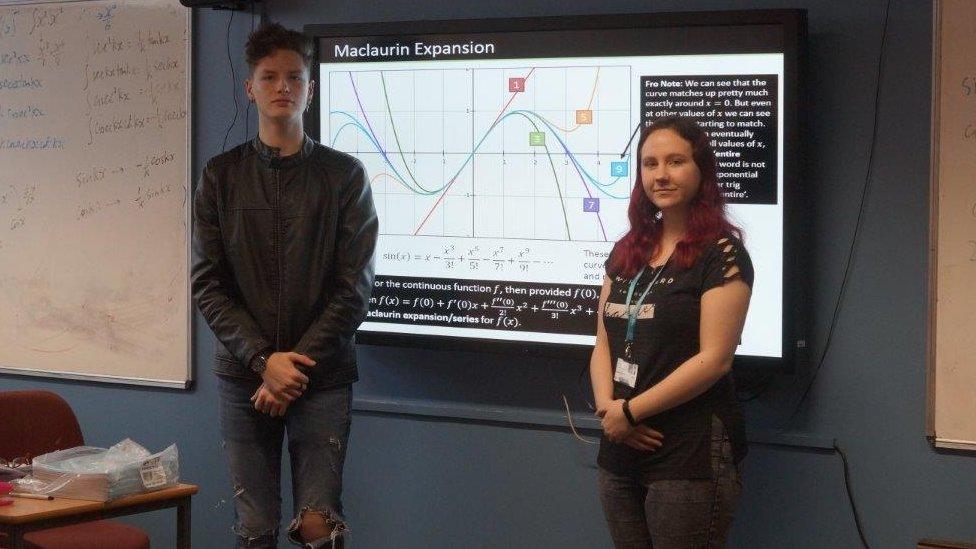
Further maths students Alfie and Alexandra are not impressed by unconditional offers
Mr Jones wants to see an end to unconditional offers.
He says: "We don't think they do the students any favours."
He would prefer university places to be decided after A-level results day in August.
"There might be a very intense period during August and early September, however it would remove this free market scramble prior to results day and it would ensure everybody works to their maximum right up until the day of the exam," he says.
- Published25 January 2019
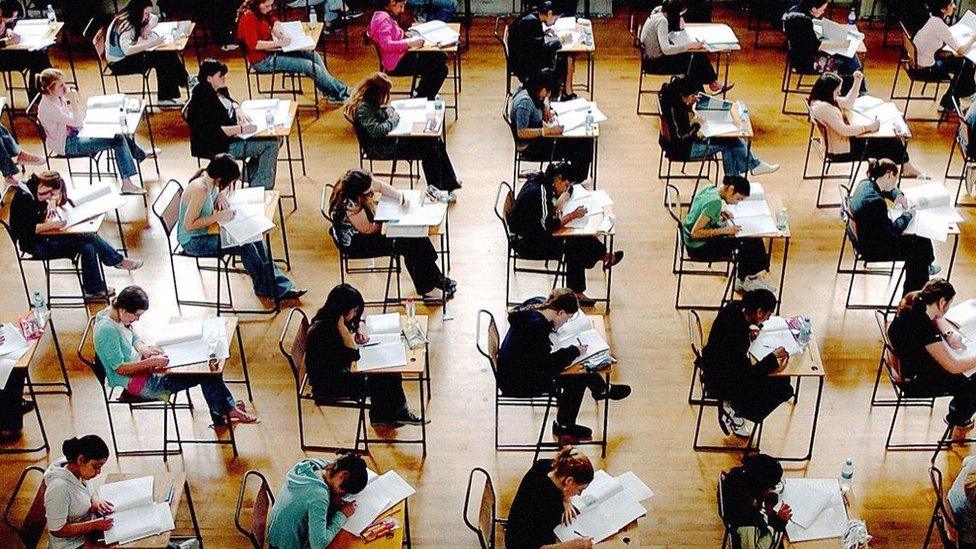
- Published31 January 2019
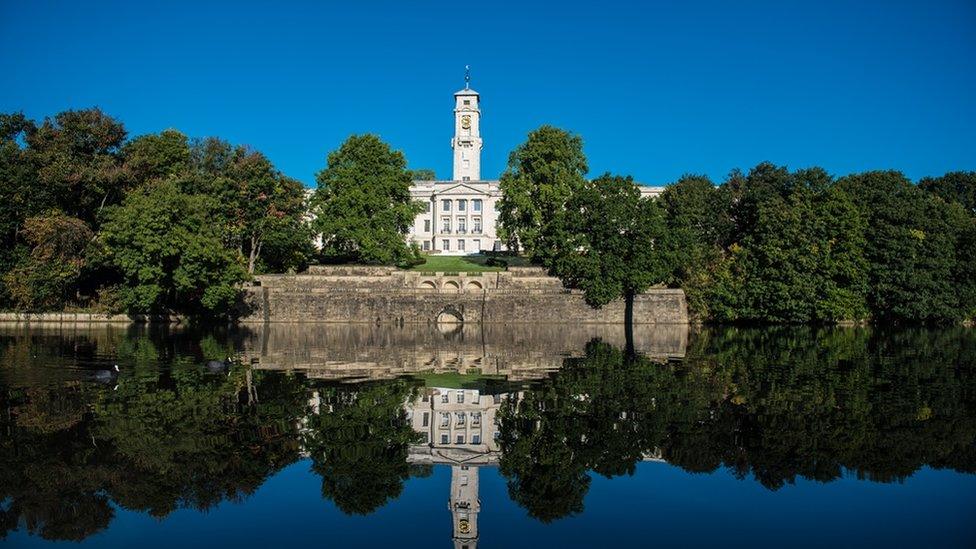
- Published29 November 2018
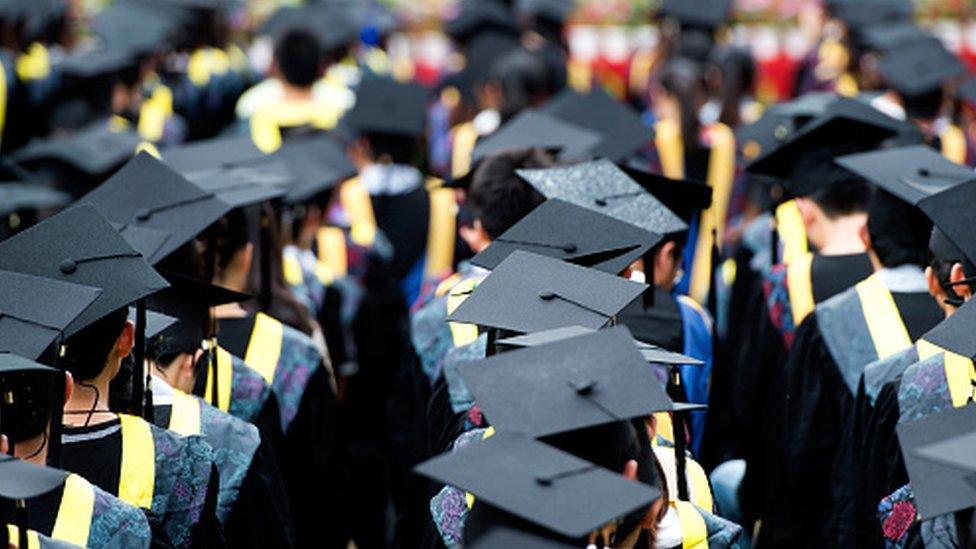
- Published26 July 2018
